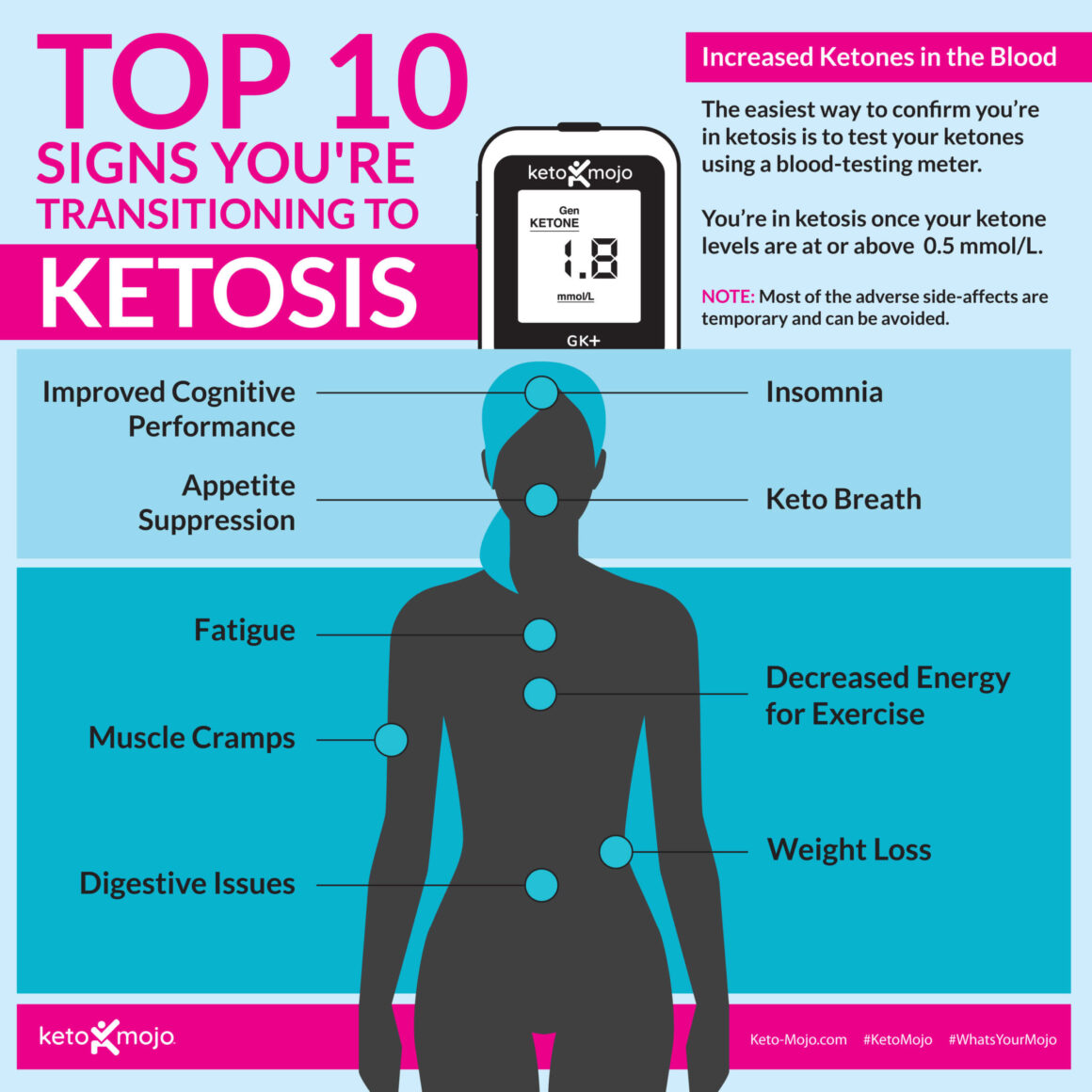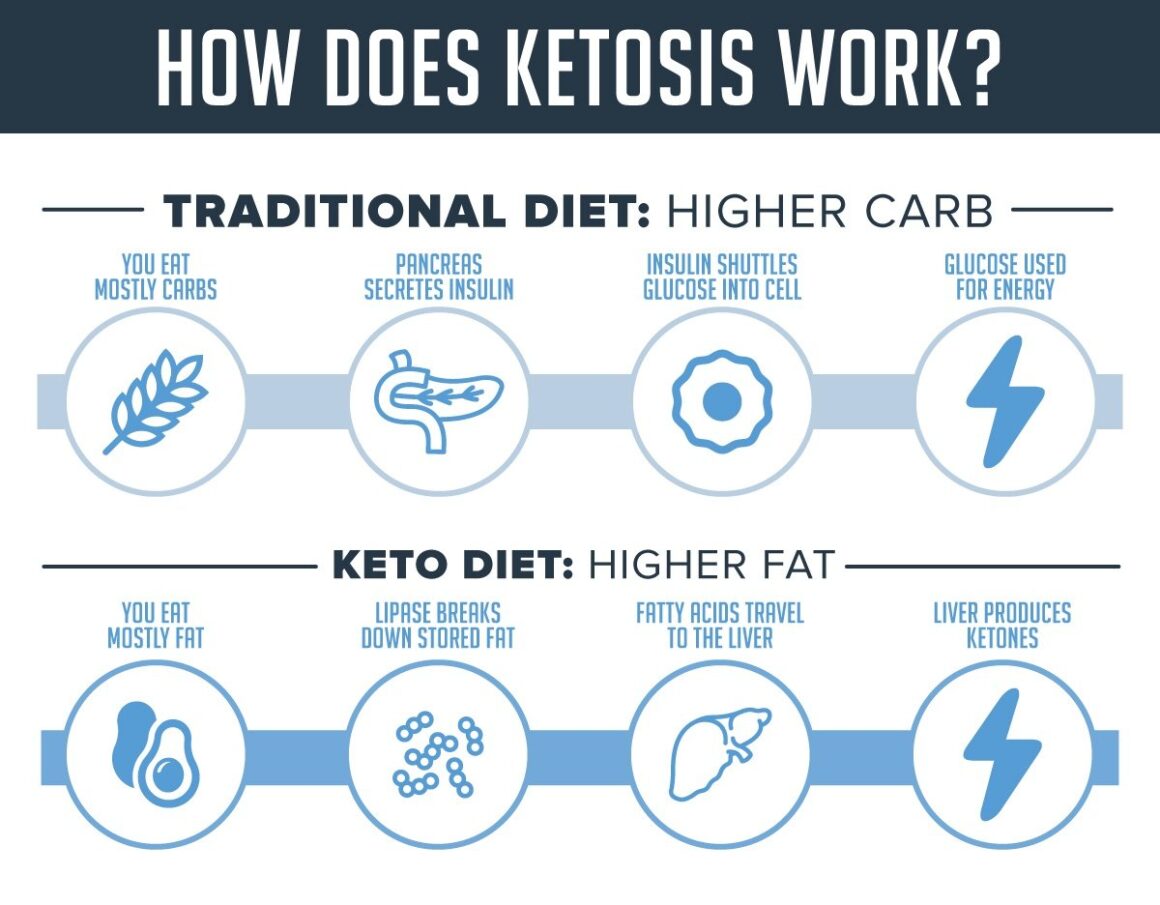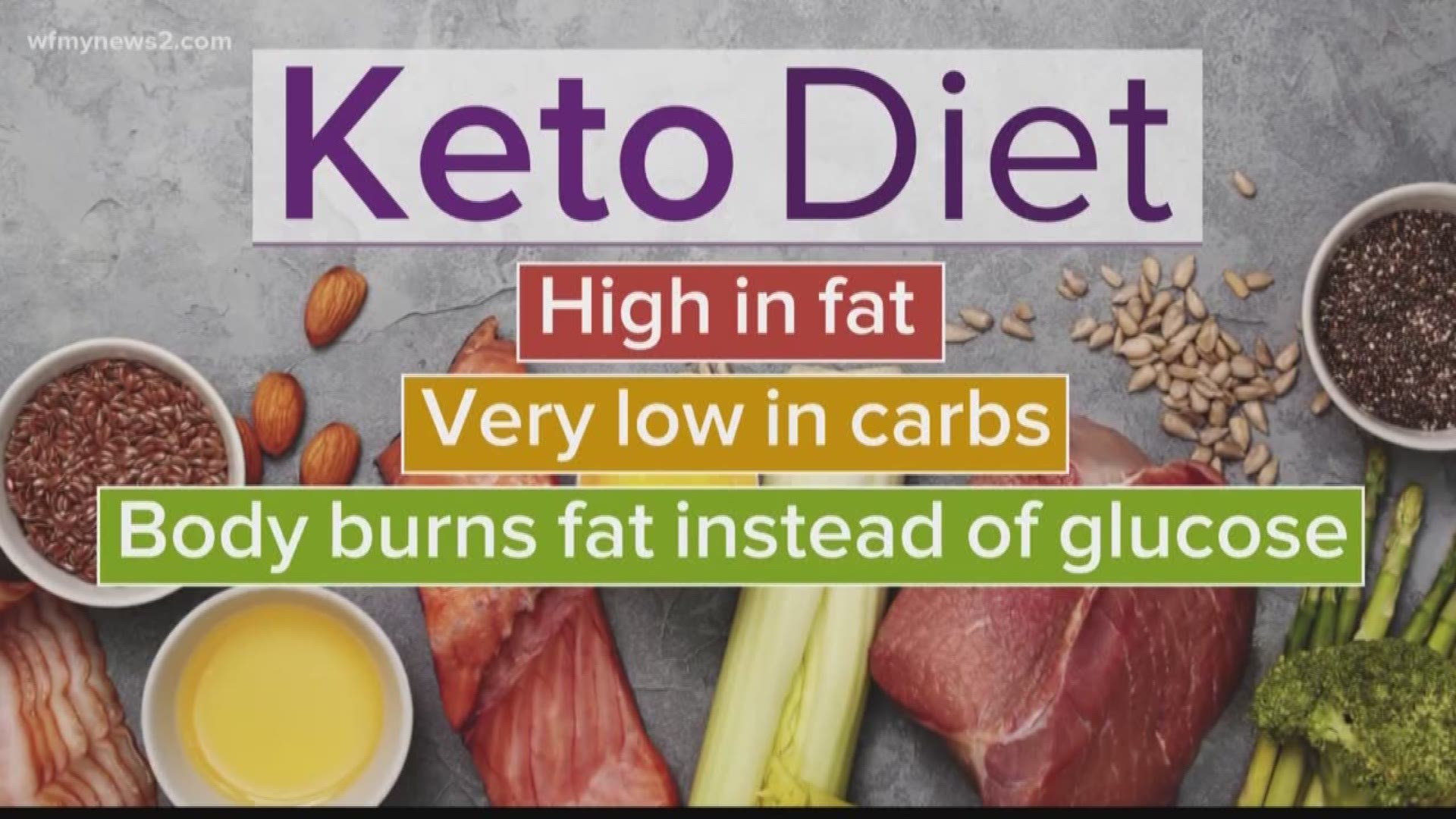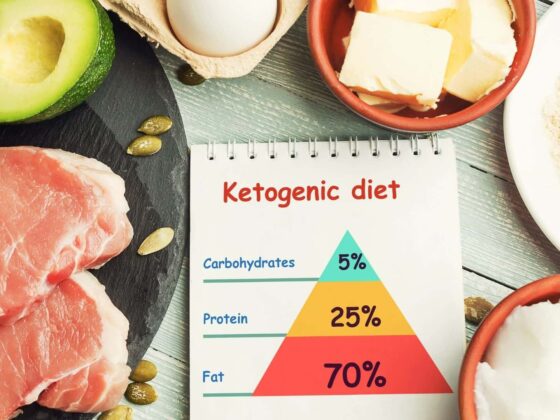If you haven’t figured this out yet, the keto diet is by far one of the most popular diets out there and it’s one that many people have managed to sing the praises of in many different ways since to be fair, it does work for some folks. A lot of people already know what it’s all about, what with the burning of fat to produce energy, rather than carbohydrates, and many also know that it’s able to help a person lose weight and can carry other benefits that are easily seen after a while. But what a lot of articles will do when it comes to telling you how long this process takes is hem and haw over the benefits and the reason why you should consider it and blah, blah, blah.

Yes, that’s a little cynical, but it’s well-deserved since a lot of sites are getting paid to spread this word, and to be honest it’s not pure pap and dreck, but it does have its place and time, and lining the inside of your ears with the praises of the keto diet gets old after a while. The main point is that keto works, maybe not for everyone but it does work, and it does take a bit of time to start working as well. If you want to know why ketosis might take a while for some and not as long for others, keep reading. I promise I won’t bore you too much with the details.
How long does it normally take to enter ketosis?

Well, as it’s already been stated, your body has to reach ketosis, and that could take a while depending on a number of factors that a lot of people don’t really like to hear about. Most folks just want it to work, right? Well, when you find a diet that works like that, let me know and I’ll know what to avoid since the body has to take time to adjust to a new substance that it’s not used to, and it has to be prepped to accept the new process that’s being tossed into the mix. The only problem with the keto diet is that you do need to drastically reduce your carb intake.
Keep in mind I didn’t say to cut it out entirely since this has already been proven to be a bad idea. But if you’re big on potato chips, rice, noodles, and other such heavy carbs, it might be time to explore other options that can satisfy your hunger and provide you with a way to avoid the constant carb flood that will keep the keto diet from working. Besides, too many carbs can drag you down eventually, especially if they’re consumed all at once in a short amount of time.
But what am I saying, you want to know how long ketosis takes, right? Well, you might not want to hear this, but it can vary from person to person. Typically it can take two to four days if you lower your carb intake. But it might take longer if you just can’t resist that fettuccine or that rice bowl that you get at your favorite teriyaki restaurant. It’s rough, I know. But the fewer carbs you take in, and again, I’m not about to advocate cutting them out entirely, the quicker the keto diet should take effect. At some point, your body will be forced to use up the reserves of glucose you’ve stored up and when that’s gone, it will switch using ketones as the necessary fuel to keep going.

Think of it this way, the more carbs you put in, the longer it’s going to take the diet to really work. You can’t keep the fires burning without adding the right fuel to them, and carbs are only going to slow things down.
There is a way to tell if you’re already in ketosis.
You will be able to tell when your body is going into ketosis much as you can tell when your body is experiencing any significant change. For one, you’ll likely undergo what’s called the ‘keto flu’ which can include:
- headaches
- fatigue
- nausea
- bad breath
- intense thirst.
These are, for the most part, your body’s way of telling you that yes, things are changing and that you’re making the transition toward ketosis. It’s not always pleasant obviously, but the transition from one habit to another, or one diet or another, can be kind of unnerving for your body, and as a result, it’s going to make any displeasure known. It might not be what you wanted to hear, but your body is going to give you signals of what’s going on and what it does and doesn’t like.
For some folks, the process can take longer.

There are plenty of reasons why this process is bound to take longer for some folks than it will for others. Eating too many carbs to let ketosis occur is a big one that a lot of people have trouble getting over since, let’s face it, a lot of us enjoy a morning donut or two, or we love sauces on our foods, or we just can’t help but consume carbs because it’s habitual and hard to break the habit.
But truthfully, some folks can eat the carbs and burn them up and still enter ketosis since it’s a matter of metabolism. But your intake of carbs is a big reason why the keto diet might not be working as well for you as it will for someone else.

Believe it or not, eating too much protein can also stymie ketosis as this encourages your body to convert amino acids from protein into sugar. Too much of this can stop the process of ketosis. Not eating enough fat, healthy fat mind you, is also a factor that contributes to slowing the process. But there are other factors that might be stopping you from reaching your potential as well, such as a lack of exercise or sleep, or any undue stress you might be feeling since your body is going to react by switching into survival mode, which usually means that a process such as ketosis won’t be a huge priority.
Be honest with your diet.
Don’t be the person that says they can’t understand why their diet isn’t working, why they aren’t losing weight, and then pulls out a candy bar and starts munching. One thing that will stop ketosis from happening and won’t make you look as though you’re fully committed to this diet is the act of making an excuse while doing everything wrong, and knowing that you’re doing it wrong. Any diet is going to fail you unless you’re willing to do the work and show a little self-discipline. Many people have had to learn this the hard way and have been unwilling or unable to conform to what the diet requires in order to let it work.
A keto diet is no different, but it is a little more strict than others since it requires more ‘good’ fats, doesn’t allow for a lot of carbs, and could possibly be a little riskier for those that aren’t a good fit for the diet. There are ways that you can stay on a keto diet and can even help yourself to reach ketosis, such as:
- Keep a food journal of everything you eat. It’s a bit of work to start with and it can feel tedious and even boring to jot down everything you consume during the day. But it does help a lot since it gives you something to look back on in order to determine what you’re eating, how much, and how that might affect your diet.
- Encourage a friend or your significant other to go on the diet with you. This is a little more difficult since a lot of people might be a bit resistant to the idea of going on the keto diet, but it can make things easier as well if you do find someone to go through the diet with you, since both of you can encourage each other and keep each other on the straight and narrow.
- Take to shopping at a store that offers healthier options. Sometimes this can be a bit more expensive, but one needs to remember that the diet requires less carbs and more protein, as well as fats, which should be easy enough to find at a health food store.
If it takes longer to reach ketosis it’s bound to get frustrating, but keep reminding yourself that the effort is worth it in order to watch the pounds fall off eventually. Nothing worth doing is ever done overnight, right? Check our Keto GT article for more info.
WTR?
Above all, we want you to be safe with this diet Radasser’s, and to pay attention to what you’re doing to your body as you attempt to eat healthier and stay active. The keto diet isn’t going to be for everyone, and reaching ketosis will be tougher for some folks, but the need to try is important if you want the results.






